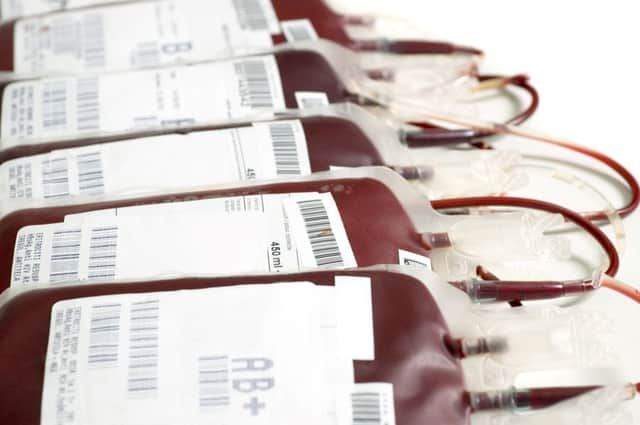Infected blood inquiry ‘will be frightened of no-one’


The inquiry into the infected blood scandal will be “frightened of no-one”, its chair said, as he thanked victims for their bravery.
Former High Court judge Sir Brian Langstaff promised to put people at the heart of the inquiry and said he has read many of the witness statements already, describing them as “harrowing” and “incredibly moving”.
Advertisement
Hide AdAdvertisement
Hide AdThe contaminated blood scandal has been labelled the worst treatment disaster in the history of the NHS. Thousands of patients were infected with HIV and hepatitis C via contaminated blood products in the 1970s and 1980s.
The Infected Blood Inquiry will hear evidence at Fleetbank House, in central London, for the rest of the week.
Two previous inquiries have been branded a whitewash by campaigners.
Inquiry chairman Sir Brian thanked those who volunteered statements and told the packed hearing room: “I have already read a large number more than once, some a number of times.
“Some are harrowing; some incredibly moving; some chillingly factual. All are valuable. There are more to come.
“For many, making a statement has been, and for some it yet will be, an act of bravery, which I would like to acknowledge publicly here and now; it may have stirred up, and may yet stir up, distressing memories. I understand some simply cannot bring themselves to make a statement because it is too much.”
Sir Brian described yesterday as a “significant” day for the inquiry and added: “At the preliminary hearings I set out the principles that were to guide this inquiry.
“They were, first and foremost, putting people at its heart, UK-wide; being as quick as reasonable thoroughness permits; paying proper respect to a person’s right to be heard; being as open and transparent as it is legally possible to be; being independent of Government, and frightened of no-one in the conclusions it draws.”
Advertisement
Hide AdAdvertisement
Hide AdSir Brian said the inquiry would recognise that people have different perspectives.
“It cannot be just a favoured few, or for that matter a favoured many, who are at its heart,” he said.
“Those wishing to attribute blame; those wishing to escape blame; those who wish neither, but just seek to understand why what happened did, or to explain their actions; those who received blood products, those who were transfused with infected blood; those who were patients, those who were doctors: all are people, and all are entitled to be heard with respect; and I would ask participants to respect that entitlement, however unpalatable they may find some of the ideas, or explanations, or accusations being expressed.”
The inquiry heard NHS England had written to GPs to help them support patients who have or who believe they may have been exposed to risks associated with infected blood or blood products.
The letter, dated 11 April, said the greatest risk was in relation to hepatitis C, which often does not have any noticeable symptoms until the liver has been significantly damaged.
After the inquiry hears from victims in central London, there will be similar testimonies over the coming months in Belfast, Leeds, Edinburgh and Cardiff.